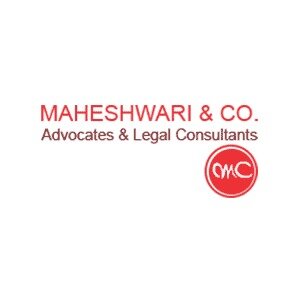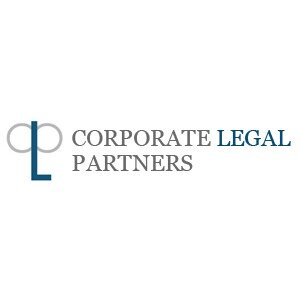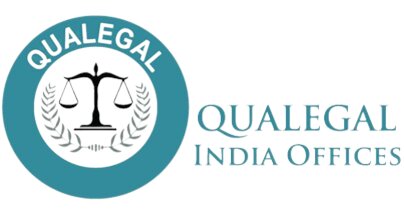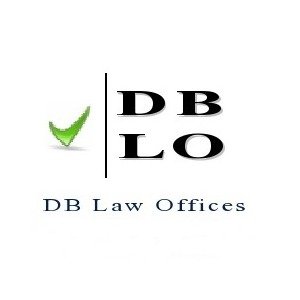Best Government Relations & Lobbying Lawyers in New Delhi
Share your needs with us, get contacted by law firms.
Free. Takes 2 min.
List of the best lawyers in New Delhi, India
About Government Relations & Lobbying Law in New Delhi, India
Government Relations & Lobbying in New Delhi, India, involves activities and strategies employed by individuals, organizations, or corporations to influence governmental decision-making, policy formation, and regulatory frameworks. Lobbying serves as a vital conduit for various stakeholders to communicate their concerns, interests, and recommendations to government officials and lawmakers. In a country as diverse and dynamically governed as India, New Delhi-being the political nerve center-plays a crucial role in such activities. Anyone involved in lobbying must adhere to ethical practices and comply with specific regulations to ensure transparency and integrity in their dealings with governmental bodies.
Why You May Need a Lawyer
Engaging in Government Relations & Lobbying in New Delhi might necessitate legal consultation for multiple reasons:
- Navigating Complex Regulations: The legal and regulatory frameworks governing lobbying can be intricate. Understanding and adhering to these laws is crucial to avoiding legal pitfalls.
- Ethical Compliance: Lawyers can provide guidance on maintaining ethical standards and preventing conflicts of interest in lobbying activities.
- Drafting Lobbying Plans: Legal professionals can assist in structuring lobbying strategies that align with legal constraints and ethical guidelines.
- Contractual Matters: They can aid in drafting, reviewing, and negotiating contracts or agreements with lobbying firms or representatives.
- Government Engagement: Lawyers facilitate effective and lawful engagement with public officials and government agencies.
Local Laws Overview
Lobbying activities in New Delhi, India, are subject to several key regulatory frameworks:
- The Representation of the People Act, 1950/1951: Ensures that electoral and political advocacy adheres to democratic principles.
- Companies Act, 2013: Mandates disclosures and governance standards for corporate lobbying, including CSR activities that might intersect with government relations.
- Prevention of Corruption Act, 1988: Prohibits any corrupt practices or bribery related to influencing public officials.
- Code of Conduct for Public Servants: Provides guidelines on interactions with lobbyists to prevent undue influence or conflicts of interest.
Frequently Asked Questions
What is lobbying?
Lobbying involves advocating on behalf of interests to influence public policy and decision-making by government officials and legislators.
Is lobbying legal in New Delhi, India?
Yes, lobbying is legal but regulated by various frameworks to ensure transparency and prevent corruption.
Who can be a lobbyist?
Individuals, organizations, or professionals with an interest in advocating for particular policy interests can act as lobbyists, subject to adherence to relevant laws and ethical guidelines.
Are there ethical guidelines for lobbying?
Yes, lobbyists are expected to follow ethical practices that emphasize transparency, integrity, and compliance with legal standards.
Can businesses lobby the government in India?
Yes, businesses can engage in lobbying activities to advocate for favorable regulatory or policy outcomes relevant to their interests.
What regulatory bodies oversee lobbying activities?
There are no dedicated lobbying regulators in India; however, laws like the Companies Act and Prevention of Corruption Act provide oversight.
How can I ensure my lobbying efforts are compliant with the law?
Consulting with a legal expert experienced in government relations and lobbying can ensure that your activities are legal and ethically sound.
Are there restrictions on lobbying activities during elections?
Yes, the Representation of the People Act sets certain boundaries on election-related advocacy to preserve fair practices.
What are the penalties for non-compliance with lobbying laws?
Penalties could include fines, legal sanctions, and reputational damage, depending on the severity of the infraction.
How can I find a lawyer specializing in government relations and lobbying?
Finding the right legal expert can involve researching law firms with specialized practices or seeking referrals from professional networks.
Additional Resources
Consider reaching out to the following resources for more information and assistance:
- Department of Industrial Policy and Promotion (DIPP): Supports industries in understanding government policies and frameworks.
- Public Affairs Forum of India (PAFI): A professional organization that offers resources and guidance on public policy and advocacy.
- Indian Corporate Lawyers Association (ICLA): Provides access to legal professionals specializing in corporate and government relations.
- Transparency International India: Offers insights on ethical practices and anti-corruption initiatives in lobbying.
Next Steps
If you need legal assistance in Government Relations & Lobbying, consider the following steps:
- Identify Your Needs: Understand the specific legal assistance you require related to your advocacy efforts.
- Research Legal Experts: Look for law firms or legal professionals in New Delhi with a specialization in government relations and lobbying.
- Consult Professional Bodies: Reach out to relevant bodies or associations for referrals to qualified professionals.
- Prepare Documentation: Gather any necessary documentation related to your lobbying activities for review by a legal expert.
- Schedule Consultations: Arrange initial consultations to assess legal advice suitability and service offerings.
Lawzana helps you find the best lawyers and law firms in New Delhi through a curated and pre-screened list of qualified legal professionals. Our platform offers rankings and detailed profiles of attorneys and law firms, allowing you to compare based on practice areas, including Government Relations & Lobbying, experience, and client feedback.
Each profile includes a description of the firm's areas of practice, client reviews, team members and partners, year of establishment, spoken languages, office locations, contact information, social media presence, and any published articles or resources. Most firms on our platform speak English and are experienced in both local and international legal matters.
Get a quote from top-rated law firms in New Delhi, India — quickly, securely, and without unnecessary hassle.
Disclaimer:
The information provided on this page is for general informational purposes only and does not constitute legal advice. While we strive to ensure the accuracy and relevance of the content, legal information may change over time, and interpretations of the law can vary. You should always consult with a qualified legal professional for advice specific to your situation.
We disclaim all liability for actions taken or not taken based on the content of this page. If you believe any information is incorrect or outdated, please contact us, and we will review and update it where appropriate.

















